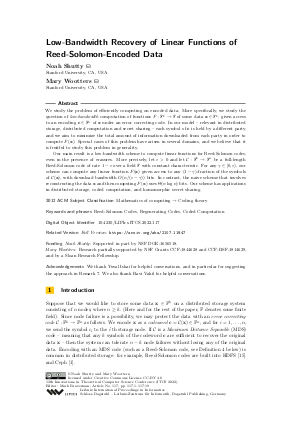LIPIcs.ITCS.2022.117.pdf
- Filesize: 0.76 MB
- 19 pages

 Creative Commons Attribution 4.0 International license
Creative Commons Attribution 4.0 International license































Feedback for Dagstuhl Publishing